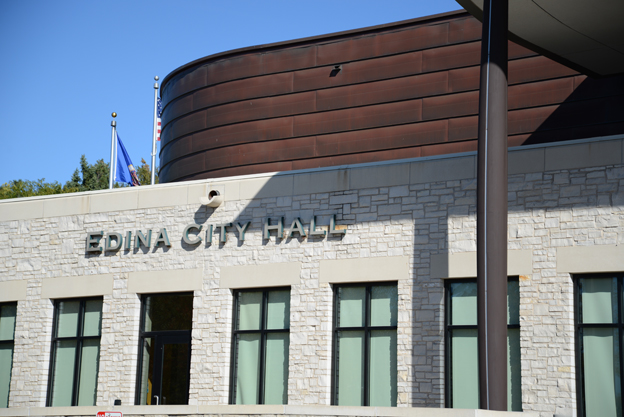

Who runs this burg, anyway?
Edina, I mean. It’s a serious question.
The civics class answer is the mayor and city council, who are elected by the residents, and who appoint members to the various city commissions to provide advice to the council, and who also hire a city manager who in turns hires the rest of the staff. (As a sidelight that is interesting to me, anyway, the police chief and department report to the city manager, not directly to the council.) The city manager’s job is to execute the policy, through the staff, that the council adopts.
Would that it were so simple.
Being the mayor or council member in a city the size of Edina is a daunting task: budget, taxes, city services, policing, planning and zoning, and not coincidentally, development. You really can’t even call serving as mayor or council member a job; the stipend they receive wouldn’t allow even a genteel form of starvation, especially in Edina.
It’s a year round, every-two-weeks council meeting and many meetings and conversations and correspondence with residents in between. Since it is so local – obviously – the potential for abrasive conversations with constituents is manifest; the matters entrusted to the mayor and council hit residents literally where they live. I think city government has a bigger impact on day-to-day life than any other.
So why on earth do they do it? Darned if I know.
Really, I do know. It’s because the mayor and council members care about the place they live in.
But as a consequence of five people trying to stay on top of all of the issues that arise in a city like Edina, it is inevitable that they have to rely on the city’s manager and staff.
It is also inevitable that the city manager and staff begin to see themselves as policy makers, as well as policy executors. But they aren’t elected, and well, council members come and go, but staff remains.
Since staff is not elected, and no matter how well meaning it is, it’s playing Sim City with other people’s money. That is especially true on matters of planning and development. If a council member or two bites the dust because of some staff idea, well, what’s the diff? The city’s staff is bureaucratic and technocratic. And enduring. It is also utopian.
And it is how, I think, we get ideas like The Lid. Readers who are not from Edina will be surprised and perhaps amused to know that Edina is considering putting a sod cover over a stretch of Highway 100 at 50th Street. Most residents of Edina would also be surprised to learn this, but they are much less likely to be amused.
The city council dispatched our city manager, Scott Neal, to the legislature this past session to ask for an appropriation to study the feasibility of the The Lid – its real name is the Grandview Greenway. You will have to read on to find out what happened.
I asked City Manager Neal where this idea came from in the first place; he said he wasn’t sure, that it might have been conceived (my word, not his) prior to his hiring. But he said that a meeting was held at the University in 2014 to discuss the feasibility and that “several parties” were interested in the idea.
I could be wrong, but I doubt that a groundswell of residents were in the “several parties.”
And you would be wrong if you thought The Lid would be built to permit the bunnies, squirrels, coyotes, and deer safe passage across Highway 100. The occasional coyote might make the ford, I suppose, but that’s not what it’s for. What it would do is free up some right of way along either side the highway for high-density development with green space over the highway itself.
Being more direct than even I usually am, this is a city planner and economic director’s wet dream. And unbelievably, with no public engagement, this sucker has got legs.
The legislature didn’t appropriate any money for a feasibility study. No especial big surprise there. But undaunted – and again without public engagement – the city has decided to spend some of its own money to study the project. It’s beginning now.
I hope that it is becoming clear to you, gentle readers, that wresting control of the government of your city away from the staff is a big job. When the council is also stocked with municipal technocrats more inclined to the staff than the residents, it is even harder.
That’s the subject of the next installment.
Thanks for your feedback. If we like what you have to say, it may appear in a future post of reader reactions.

